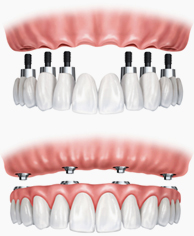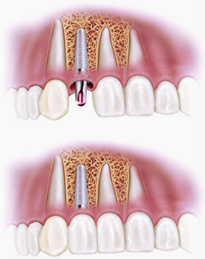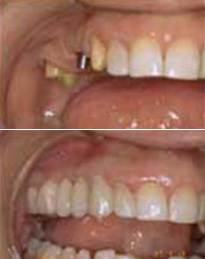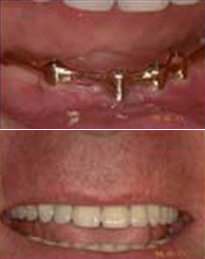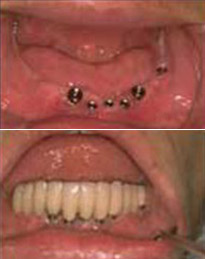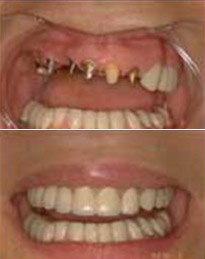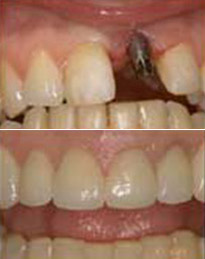What are dental implants?
The dental implant substitutes a tooth root and is firmly anchored in the jaw. An implant can support a porcelain tooth, a fixed porcelain bridge, or removable denture. Dental implants are made of titanium, a strong, biocompatible material.
Dental implants are inserted into the jawbone to replace the missing tooth root. After a short healing period, the bone attaches to the implant in a process called osseointegration. That's when a replacement tooth can be attached to the implant. Dental implants are used to replace lost or damaged teeth, eliminating the need for dentures, partials or crowns. Dental implants are like natural teeth, but of higher quality, because decay or a nerve abscess cannot affect them. In addition, implants can prevent bone loss and promote a more youthful face. The success rate depends on the quantity and quality of existing bone at the time of implantation. Statistics show a success rate of 85 - 90% for the upper jaw and the rear part of the lower jaw and from 95 - 100% for the front part of the lower jaw. These statistics were down 10% among smokers.

